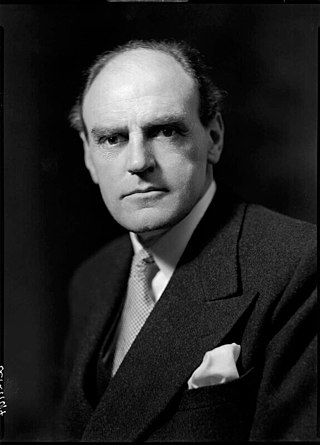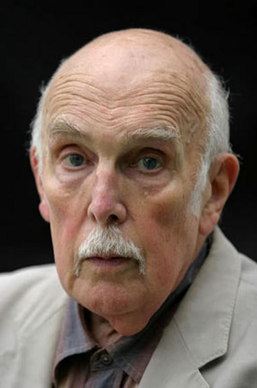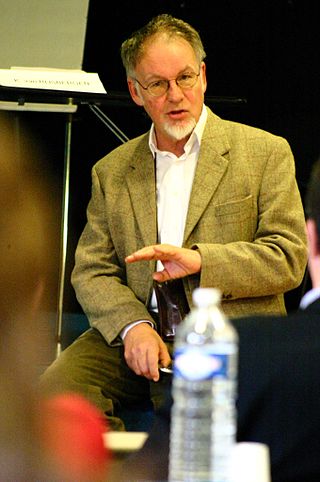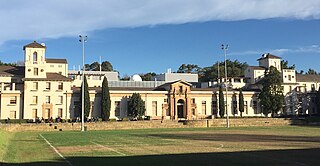
Alan Jay Perlis was an American computer scientist and professor at Purdue University, Carnegie Mellon University and Yale University. He is best known for his pioneering work in programming languages and was the first recipient of the Turing Award.

The Royal Institution of Great Britain is an organisation for scientific education and research, based in the City of Westminster. It was founded in 1799 by the leading British scientists of the age, including Henry Cavendish and its first president, George Finch. Its foundational principles were diffusing the knowledge of, and facilitating the general introduction of useful mechanical inventions and improvements, as well as enhancing the application of science to the common purposes of life.

The Reith Lectures is a series of annual BBC radio lectures given by leading figures of the day. They are commissioned by the BBC and broadcast on Radio 4 and the World Service. The lectures were inaugurated in 1948 to mark the historic contribution made to public service broadcasting by Lord Reith, the corporation's first director-general.

Sir Bernard Rowland Crick was a British political theorist and democratic socialist whose views can be summarised as "politics is ethics done in public". He sought to arrive at a "politics of action", as opposed to a "politics of thought" or of ideology, and he held that "political power is power in the subjunctive mood." He was a leading critic of behaviouralism.

C. J. "Keith" van Rijsbergen FREng is a professor of computer science at the University of Glasgow, where he founded the Glasgow Information Retrieval Group. He is one of the founders of modern Information Retrieval and the author of the seminal monograph Information Retrieval and of the textbook The Geometry of Information Retrieval.

Andries "Andy" van Dam is a Dutch-American professor of computer science and former vice-president for research at Brown University in Providence, Rhode Island. Together with Ted Nelson he contributed to the first hypertext system, Hypertext Editing System (HES) in the late 1960s. He co-authored Computer Graphics: Principles and Practice along with J.D. Foley, S.K. Feiner, and John Hughes. He also co-founded the precursor of the ACM SIGGRAPH conference.

Jacob Theodore "Jack" Schwartz was an American mathematician, computer scientist, and professor of computer science at the New York University Courant Institute of Mathematical Sciences. He was the designer of the SETL programming language and started the NYU Ultracomputer project. He founded the New York University Department of Computer Science, chairing it from 1964 to 1980.

The Timoshenko Medal is an award given annually by the American Society of Mechanical Engineers (ASME) to an individual "in recognition of distinguished contributions to the field of applied mechanics."

Martin Karplus is an Austrian and American theoretical chemist. He is the Director of the Biophysical Chemistry Laboratory, a joint laboratory between the French National Center for Scientific Research and the University of Strasbourg, France. He is also the Theodore William Richards Professor of Chemistry, emeritus at Harvard University. Karplus received the 2013 Nobel Prize in Chemistry, together with Michael Levitt and Arieh Warshel, for "the development of multiscale models for complex chemical systems".
Charles Francis Van Loan is an emeritus professor of computer science and the Joseph C. Ford Professor of Engineering at Cornell University, He is known for his expertise in numerical analysis, especially matrix computations.
Sir John Harrison Burnett was a British botanist and mycologist, who served as the principal and vice chancellor of Edinburgh University from 1979 to 1987.

The School of Physics is a constituent body of the Faculty of Science at the University of Sydney, Australia.
Yousef Saad in Algiers, Algeria from Boghni, Tizi Ouzou, Kabylia is an I.T. Distinguished Professor of Computer Science in the Department of Computer Science and Engineering at the University of Minnesota. He holds the William Norris Chair for Large-Scale Computing since January 2006. He is known for his contributions to the matrix computations, including the iterative methods for solving large sparse linear algebraic systems, eigenvalue problems, and parallel computing. He is listed as an ISI highly cited researcher in mathematics, is the most cited author in the journal Numerical Linear Algebra with Applications, and is the author of the highly cited book Iterative Methods for Sparse Linear Systems. He is a SIAM fellow and a fellow of the AAAS (2011).

Charles Frederick William Illingworth was a British surgeon who specialised in gastroenterology. Along with a range of teaching and research interests, he wrote several surgical textbooks, and played a leading role in university and medical administration.












